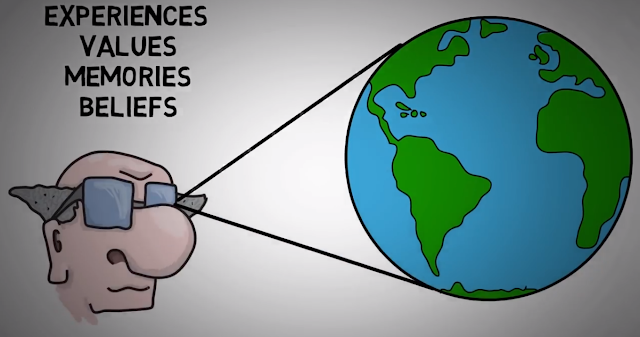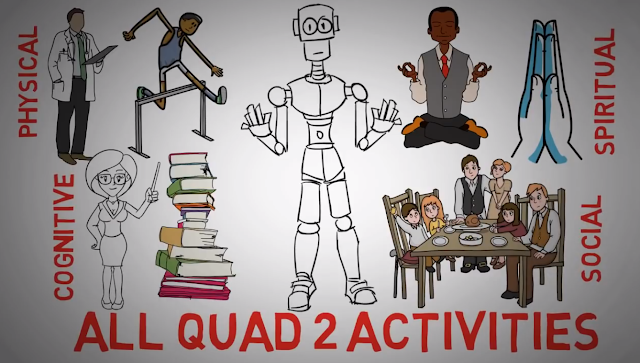The 7 Habits of Highly Effective People by Stephen Covey Book Summary Part-1 ( First Three Habits Summary)
Alright
guys welcome to part two of these seven Habits of Highly Effective People by
Stephen Covey if you haven't Read the first part go ahead and click on the link here. So you can see the first three habits in the first three habits you move
from being a dependent to an independent person by being proactive beginning
with the end in mind and putting first things first the first three habits are
about self mastery they help you become more effective as an individual by
developing inner strength character purpose and values the next three habits
are I'm going to cover in this video move you from being independent to being interdependent
again interdependence is the highest level of what Stephen Covey calls the
maturity continuum the maturity continuum consists of three levels dependence
independence and interdependence.
Dependence
is like the relationship between M child and a mother or even sometimes between
a boss and employee it's the attitude of you to move from dependence to independence
you have to nail the first three habits again be proactive begin with the end
in mind and put first things first this is the attitude of I and then you have
the next level which is interdependence this is where you're thinking like a
team you know a family and a teamwork mentality we accomplish what we want
together it's the attitude of we. we can combine our different talents and our
abilities to make something even greater habits four through six help you deal
with people teach you how to read the needs and empathize and cooperate with
people they help you build strong relationships.
Habit four is think win-win there are six types of personal and business
relationships there's lose win and win lose which is the typical mentality for
most in order for me to win you have to lose this is the mindset of someone is
going to get the good end of the deal and someone is going to get screwed this
is a poor mindset to have but people live with this outlook because most people
have a scarcity mindset they have a lack of abundance mindset there's also the lose-lose
relationship which of course is no good for anybody and I have a quick example
for this one. I had a friend who got divorced and he was about to retire from
the military instead of retiring and getting a pension which half of it would
go to his wife he got out at 19 year got no pension in this case they both lost
out then you have the win and this is not really a relationship at all. This is
you just getting what you want and not providing value to anyone else and it's
pretty much just selfish.
Next
there is no deal this one's pretty much neutral if you can't come to a deal where
you both benefit then there's no deal and then we come to the best type of
relationship which is a win-win we want to look for win-win relationships we
want to search for mutual benefit and we need to have the mindset that there's plenty
out there there's abundance we can share knowledge we can gain we can profit
together we don't need to crush each other out we can work together instead
life isn't a zero-sum game so look at every situation with a win-win mentality
a quick example of a win-win is hey I buy a book for $20 and I get all this
insight and knowledge and the author also benefits by getting 20 bucks so again
seek win-win relationships if it's not gonna be mutually beneficial than
default to No Deal.
Habit
5 is seek first to understand then to be understood Stephen tells a great story
here Stephen and his son have a talk and Stephen can't get through to his son about
some issue they're having he then goes to a friend for advice he tells a friend
I just can't understand my son sometimes he won't listen to me the friend says
hold on a second let me get this straight you can't understand your son because
he won't listen to you I thought that to understand someone you have to listen
to them. That's a great point isn't it for us to understand someone we have to listen
to them not the other way around. It's common sense really but most of the time
this is how our relationships play out.
We
often get mad at people because they don't think the way we think we all see
the world differently we all see the world through our own perceptions and opinions
based on our own experiences you can't understand someone unless you really
listen to them try to understand their perspective first try to understand how
they're feeling why this is called emphatic listening.
This
is the highest level of listening the others being ignoring pretending to
listen selective hearing and attentive listening none of those are very effective
but most of us listen using one of these levels most people don't listen with
the intent to understand we listen with the intent to reply before the other
person even finishes so before you judge before you take action before you
contribute just listen so if your wife says I hate my job instead of providing
advice or repeating what she said which is a typical response you rephrase the content
and reflect the feeling and say something like you're not enjoying your job and
you're feeling upset about it this gets you both on the same side of the table
you're listening with the intent to understand intellectually and emotionally
and then you can move forward to repair the situation. The time to be
understood is when the conversation leads to logic and advice is requested when
you go down this path maybe she'll eventually respond with should I look for
another job.
This
is when you can seek to be understood this is when you can provide your advice
but if it goes back to an emotional level then you listen again em-pathetically until
logic is brought back this creates an atmosphere of caring.
Habit
six is synergy the idea behind this is that different people bring different opinions
ideas perspectives and strengths to the table instead of simply tolerating or
accepting these differences we should celebrate them we should value these
differences this is what any good CEO does they get their different subject
matter experts and get their input to come up with the best solution another
way to think of synergy is when you put two pieces of wood together one piece
of wood by itself isn't that strong but when you put two together the overall
strength increases by more than two times with synergy one plus one can equal
three ten or a hundred think of how individual units can work together to
create something even bigger another example is the human body there are many
individual parts that are amazing in their own right but all the parts together
create something amazing so again habits four through six deal with
relationships these three habits can help you have effective and interdependent
relationships with others the last habit.
Habit
7 is to sharpen the saw let's say you see a guy cutting down a tree with a dull
saw you say hey why don't you sharpen that thing it's gonna take six hours at
this rate he says I don't have time to sharpen I have to cut this tree down you
explain if you spend one hour sharpening that saw it'll only take you three
hours to cut down the tree you don't have time not to sharpen the saw this
example can be applied to our lives on many different planes we are the
instruments and we have to regularly sharp in four areas and these areas fall
into quadrant two activities.
Physical
find the importance of it again it's not urgent but it's important you can have
the exercise and feel good now or pay for it in thirty years when you're in
hospital with all kinds of physical ailments that you could have avoided the
next area spiritual you know ask yourself contemplate Who am I where am I going
meditate prayer music art and so on the next one is cognitive health continue
to learn to explore to expand educate yourself immerse yourself in another culture
teach others and the fourth one is social health this is relationships living interdependently
spending time with family or friends.
With all four of these areas
think continuous improvement we must continually renew ourselves and the best
way to unleash your future potential is by investing invest in yourself strive
for continuous learning and improvement doing so renews each of the other
habits as well this habit keeps you fresh so you can handle the other six
habits make these seven habits a part of your life don't just attempt to
understand them intellectually try to live them apply these habits and teach them
to others because the best way to learn is by teaching it to someone else this
is a lifelong process that requires patience it's not a quick fix it won't happen
overnight and it will be a challenge as you continue down the path you'll hit
obstacles and you'll fall back a time or two but this is necessary old habits
will pull you down but don't give up keep pushing yourself and you'll hit new
heights and levels of effectiveness as you progress be open to self-discovery
and be open minded that's it guys I hope you enjoy these articles if you did
please give it a like and Share and follow my blog for more similar articles.
Here is link below for Part 1 of this Summary.
https://blackbookreviewclub.blogspot.com/2019/10/the-7-habits-of-highly-effective-people_17.html
https://blackbookreviewclub.blogspot.com/2019/10/the-7-habits-of-highly-effective-people_17.html















0 Comments